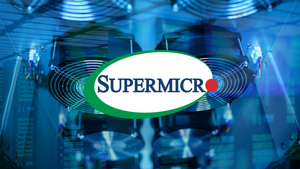
Quantum computing, once a theoretical marvel, is rapidly transitioning into a tangible force, poised to fundamentally alter the landscape of numerous industries. Recent breakthroughs in hardware, error correction, and the development of hybrid quantum-classical systems are accelerating its journey from the lab to commercial application. This technological revolution promises to unlock solutions to problems currently deemed intractable, from designing novel materials with unprecedented properties to forging impenetrable communication networks. The implications for global markets, corporate titans, and the very fabric of technological innovation are profound, heralding an era of exponential advancement and competitive upheaval.
The Dawn of a New Computing Era: What Happened and Why It Matters
The past few years have witnessed a surge of critical advancements in quantum computing, moving the field beyond mere theoretical promise. Key players, including tech giants and specialized startups, have pushed the boundaries of what's possible, leading to a new era of computational power.
At the heart of these developments are significant improvements in quantum hardware. Companies like IBM (NYSE: IBM) have achieved impressive qubit counts, with processors like Condor boasting over 1,000 superconducting qubits, laying the groundwork for even larger-scale quantum machines. Google (NASDAQ: GOOGL) has made strides in quantum error correction with its Willow processor, demonstrating the ability to reduce error rates, a crucial step toward stable and reliable quantum computation. Meanwhile, Microsoft (NASDAQ: MSFT) is actively exploring topological qubits, which offer inherent stability advantages. These advancements are not just about raw power; they are about building robust and dependable quantum systems that can perform complex calculations without succumbing to quantum noise. The development of hybrid quantum-classical systems, exemplified by collaborations like DGX Quantum between Quantum Machines and NVIDIA (NASDAQ: NVDA), further underscores a pragmatic approach, integrating quantum accelerators with traditional supercomputers to tackle real-world challenges. These milestones are critical because they demonstrate that quantum computers are evolving from experimental curiosities into powerful tools capable of solving problems that classical computers simply cannot, opening doors to unprecedented innovation across science and industry.
Quantum Ripples: How This Event Might Affect the Market
The accelerating progress in quantum computing is set to send significant ripples through financial markets, creating new avenues for growth while simultaneously posing existential threats to established industries. The market for quantum technologies, including computing, communication, and sensing, is projected to reach nearly $200 billion by 2040, with quantum computing alone expected to add over $1 trillion to the global economy between 2025 and 2035. This massive economic potential is attracting substantial investment, with nearly $2.0 billion poured into quantum technology startups in 2024 alone, a 50% increase from the previous year.
Companies deeply invested in quantum research and development are poised to become the new market leaders. IBM (NYSE: IBM), Google (NASDAQ: GOOGL), Microsoft (NASDAQ: MSFT), and Amazon (NASDAQ: AMZN) through AWS (NASDAQ: AMZN), are at the forefront, offering Quantum Computing as a Service (QCaaS) platforms that allow businesses to access quantum resources on demand. This model is projected to account for over 40% of the quantum computing market by the end of the decade, making these cloud providers significant beneficiaries. Specialized quantum hardware and software companies like D-Wave (NYSE: QBTS) and PsiQuantum, the latter receiving substantial government funding from Australia, are also strong contenders. Conversely, companies heavily reliant on traditional computational methods for complex problems, particularly in fields like drug discovery or materials science, could face disruption if they fail to integrate quantum capabilities into their operations. Furthermore, the advent of quantum computers capable of breaking current encryption standards could destabilize the cybersecurity market, creating a urgent need for post-quantum cryptography solutions, benefiting companies that specialize in these advanced security measures.
The financial sector, in particular, stands to undergo a significant transformation. Quantum algorithms can optimize complex financial models, enhance portfolio management, and improve risk analysis with unparalleled speed and accuracy. This could lead to a competitive advantage for financial institutions that adopt quantum solutions early, potentially displacing those that lag in technological adoption. Similarly, in manufacturing, companies like Ford Otosan are already leveraging hybrid-quantum applications to streamline processes, demonstrating tangible benefits and foreshadowing a broader industry shift towards quantum-enhanced operational efficiency. The market will likely see a surge in M&A activity as larger tech companies acquire promising quantum startups, further consolidating expertise and accelerating commercialization efforts.
Broader Implications: Reshaping Industries and Global Dynamics
The advancements in quantum computing extend far beyond mere computational speed, promising to fundamentally reshape entire industries and even global geopolitical dynamics. This technological leap fits into a broader trend of exponential technologies driving rapid change, similar to the impact of the internet or artificial intelligence.
In materials science, quantum simulations can design novel materials with specific, previously unattainable properties. Imagine batteries that charge in minutes and last for weeks, or catalysts that make industrial processes vastly more efficient and environmentally friendly. This will revolutionize manufacturing, energy storage, and even aerospace. For drug discovery and healthcare, quantum computers can accurately simulate molecular interactions, drastically cutting down the time and cost associated with developing new medicines and vaccines, and enabling personalized treatment plans based on an individual's genetic makeup. The financial sector will see enhanced fraud detection, more accurate risk assessments, and sophisticated trading algorithms, creating a new era of financial engineering.
The cybersecurity landscape faces both profound threats and unprecedented opportunities. While quantum computers pose a theoretical risk to current encryption methods, they also enable the development of unhackable communication through quantum key distribution (QKD) and post-quantum cryptography (PQC). This will necessitate a global shift in cybersecurity strategies and infrastructure, with nations and corporations scrambling to secure their digital assets against future quantum attacks. The race for quantum supremacy is not just economic but also a matter of national security, with governments globally investing heavily to lead in this critical domain. This could lead to new regulatory frameworks and international collaborations focused on quantum ethics and security standards. Historically, every major technological leap, from the steam engine to the internet, has brought about new regulations, ethical debates, and shifts in global power dynamics, and quantum computing will be no different.
What to Pay Attention to Next
As quantum computing continues its rapid evolution, several key areas warrant close attention from investors, industry leaders, and policymakers. In the short term, the focus will be on the continued development of more stable and higher-qubit count quantum processors. Breakthroughs in quantum error correction, which are essential for building fault-tolerant quantum computers, will be critical indicators of progress. Keep an eye on announcements from leading companies like IBM (NYSE: IBM), Google (NASDAQ: GOOGL), and Microsoft (NASDAQ: MSFT) regarding their hardware roadmaps and the successful demonstration of logical qubits. The emergence of more robust hybrid quantum-classical algorithms and platforms, capable of tackling real-world optimization and simulation problems, will also signal the increasing maturity of the technology.
In the long term, the commercialization trajectory of quantum computing will be a dominant theme. While widespread adoption is still a few years away, specific application-driven commercial use cases are expected to emerge by 2029. Watch for pilot programs and successful implementations in industries such as pharmaceuticals, finance, and logistics, which will validate the economic value proposition of quantum solutions. The growth of Quantum Computing as a Service (QCaaS) offerings from major cloud providers like AWS (NASDAQ: AMZN), Google Cloud (NASDAQ: GOOGL), and Azure (NASDAQ: MSFT) will also be a key trend, making quantum resources more accessible to a broader range of businesses. Furthermore, the development and standardization of post-quantum cryptography (PQC) will be crucial for safeguarding digital infrastructure against future quantum threats, creating significant market opportunities for cybersecurity firms.
Conclusion: A Transformative Force on the Horizon
Quantum computing stands as a monumental technological frontier, poised to deliver a transformative impact across industries, markets, and societies. The recent flurry of breakthroughs in hardware, error correction, and the integration of quantum with classical systems underscore that this is no longer a distant dream but a rapidly approaching reality. The ability of quantum computers to solve problems currently beyond the reach of even the most powerful supercomputers will unlock unprecedented innovation in areas ranging from drug discovery and materials science to secure communication and financial modeling.
For investors, the quantum revolution presents both immense opportunities and significant risks. Companies that strategically invest in quantum research, acquire quantum startups, and integrate quantum capabilities into their core operations are likely to emerge as market leaders. Conversely, those that fail to adapt or whose business models become obsolete due to quantum advancements may face severe challenges. The market will continue to see substantial investment, with a strong focus on hybrid solutions and Quantum Computing as a Service, making the tech giants and specialized quantum firms key players to watch.
Moving forward, the focus will be on transitioning from theoretical demonstrations to practical, commercially viable applications. The next few years will be critical in developing fault-tolerant quantum computers and proving their tangible return on investment across various sectors. Investors should closely monitor advancements in qubit stability, error correction rates, and the successful deployment of quantum solutions in real-world industrial settings. The race for quantum supremacy is intensifying, promising a future where computation is not just faster, but fundamentally different, reshaping our world in ways we are only just beginning to imagine.





